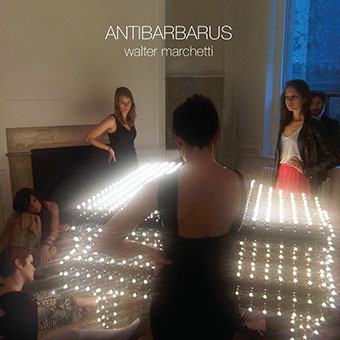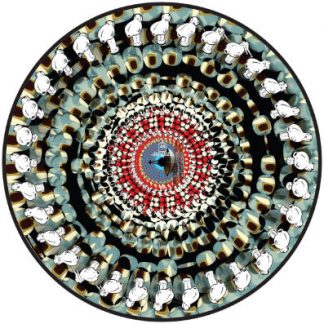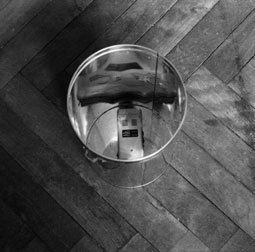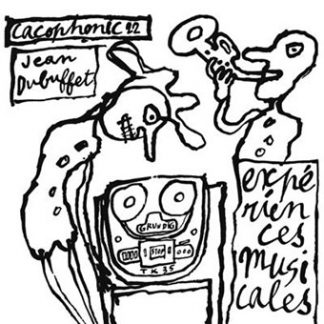Description
“Antibarbarus”, issued as a compact disc in 1998, was the first edition Walter Marchetti released on alga marghen. Unavailable for distribution for more than a decade, we decided to present this masterpiece now as a double LP.
The “Antibarbarus” cycle of five pieces makes use of original tapes coming from the same recording sessions that originated some of Marchetti’s major musical works realized in the ’80s and then collected in his two CDs, “Vandalia” and “Per la sete dell’orecchio”. This former series of works presented some homogeneous and untouched sound sources in the ‘concrete’ status of their inner—and necessarily chaotic—level of entropy. Nevertheless this operative and only in appearance ‘neutral’ premise introduces an implicit mimetic transposition. This link between the ‘iconic’ threshold of the acoustical material and its transposition literally deconstructs the prerogatives and the ideological categories of music composition.
In “Antibarbarus”, the temporal continuum restores the mimesis of the phenomenal regression of musical time, crystallized in a framed-length which gets estranged from subjective domain. But the transfiguration of sound sources now deliberately intends to de-signify the analytical prerogatives of hearing. The sensorial perception is in such a way inhibited from an immediate comprehension of the acoustic reality so reproduced: canis reversus ad vomitum suum.
Exit musica: in the epilogue which entitles the entire cycle—“Antibarbarus”—we find an effective allusion to a ‘scatological’ decline of time as well as of its sterile and residual ‘representations’ that music condenses. This appears not without supposing an inversion of its dialectical sign, in order to oppose the antithesis of a radical humanism to the barbarity of utilitarian and instrumental reason.
In the late 1950s Wlater Marchetti was able both to formalize a more critical aim towards the established lingua franca and absolutist ideology of musical avantgardism and to expand the sense of artistic praxis, in line with an ethical and subtly political evaluation of aesthetic experience. Marchetti was inspired by Cage’s poetics of indeterminacy and subsequently created, through a close and indissoluble association with Juan Hidalgo and José Luis Castillejo, an original and de-ritualized form of action-music which led in 1964 to the birth of ZAJ group. Marchetti’s work relays, in its procedural level, upon a resolute de-functioning of the musical codes and impose this act as a reversed mimesis of the methodological statute of music composing. Namely, not a ‘degré zero de l’écriture’, but its ‘reversal’; not a ‘denial of style’, but ‘style of denial’. In this perspective, Walter Marchetti’s oeuvre condenses one of the rare examples of aesthetic radicalism consciously extended to music poetics.
Double-LP in full color gatefold sleeve and printed inner sleeves (with photos of “Musica da camera n. 182”, London, Raven Row, 1989/2011 and “Music in secca”, Milano, Fondazione Mudima, 2003) as well as liner notes by Gabriele Bonomo in English and Italian.




